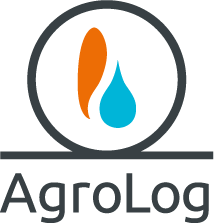The Role of Crop Level Monitoring in Grain Management
Automation in grain management introduces unmatched efficiency and the manual labor traditionally required is significantly reduced. Automation means that real-time data is always available, enabling quick decision-making that can dramatically reduce waste, improve safety, and optimize operational workflow.
AgroLog’s level monitoring technology, integrated with AgroLog Manager software highlights its benefits. The platform provides a user-friendly interface for managing the data gathered by the monitoring systems. It allows for detailed analysis, customizable alerts based on specific thresholds, and even predictive insights for future storage needs. Essentially, AgroLog Manager turns data into actionable intelligence, enabling operators to maintain optimal storage conditions and make informed decisions that boost efficiency and profitability.
Real-time, accurate crop level monitoring for optimal inventory management
Automated data collection reduces manual labor and increases efficiency
Enhanced operational safety by preventing overfilling and managing storage conditions
Improved quality control of stored crops through precise environmental monitoring
Detailed data analysis and customizable alerts
Facilitates sustainable agriculture practices by minimizing waste and optimizing resource use
Beyond the immediate operational benefits, the adoption of advanced monitoring technologies reflects a broader move towards sustainability in agriculture. By optimizing storage conditions and reducing waste, the technologies support the efficient use of resources - a crucial aspect in global food scarcity and the push for environmental sustainability.
Read more of our Crop Level Monitoring Bob and Crop Level Monitoring Radar to learn more.


